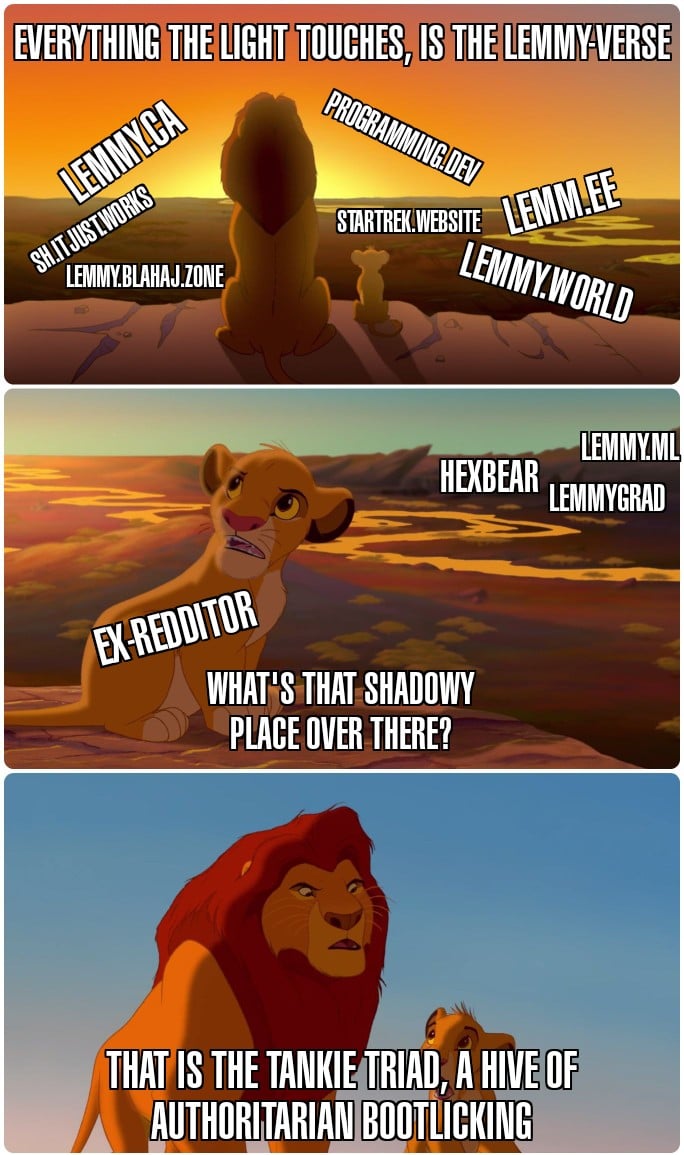this post was submitted on 06 Feb 2025
803 points (82.6% liked)
memes
17467 readers
1876 users here now
Community rules
1. Be civil
No trolling, bigotry or other insulting / annoying behaviour
2. No politics
This is non-politics community. For political memes please go to !politicalmemes@lemmy.world
3. No recent reposts
Check for reposts when posting a meme, you can only repost after 1 month
4. No bots
No bots without the express approval of the mods or the admins
5. No Spam/Ads/AI Slop
No advertisements or spam. This is an instance rule and the only way to live. We also consider AI slop to be spam in this community and is subject to removal.
A collection of some classic Lemmy memes for your enjoyment
Sister communities
- !tenforward@lemmy.world : Star Trek memes, chat and shitposts
- !lemmyshitpost@lemmy.world : Lemmy Shitposts, anything and everything goes.
- !linuxmemes@lemmy.world : Linux themed memes
- !comicstrips@lemmy.world : for those who love comic stories.
founded 2 years ago
MODERATORS
you are viewing a single comment's thread
view the rest of the comments
view the rest of the comments

I think a useful exercise would be to look at what, as you say, "looks good on paper." Where did you get that conception, from Marx, or people talking about Marx? Part of the Red Scare was blunting and twisting Marx, it wasn't just "Marx and Marxists eat babies" or overt misinformation easily dispelled, but often worked in subtle ways, and still does.
I am not going to turn this into a lecture on Marxism (unless you want that, I can do that for hours because I am a fucking nerd). However, I do want to point out that Marx's prediction for Communism was of a fully publicly owned and planned economy over the world, where everyone shared equal ownership with all of industry. He predicted this because he watched Capitalist industry get larger and larger over time, and competition become less and less feasible as barriers to entry got more expensive.
I think you have an idea of Marx in your head that envisions a horizontalist, decentralized economy, when Marx thought further centralization is a necessity of advancing industry in a more and more interconnected production process. We could spend days and years talking about what the PRC and former USSR gets right and wrong, but my point here is more about just how easy it is to misunderstand Marxism entirely from the get-go.
I suspect you're right. I have a list of books I still need to read on this stuff.
Cool! I also made a reading list linked on my profile you can check if you want to compare, but not super necessary.
I'll do that, thanks. I like challenging reads and have sadly misplaced my e-reader, so my to-read list is backing up a lot.
Sounds good! Feel free to ask any questions.